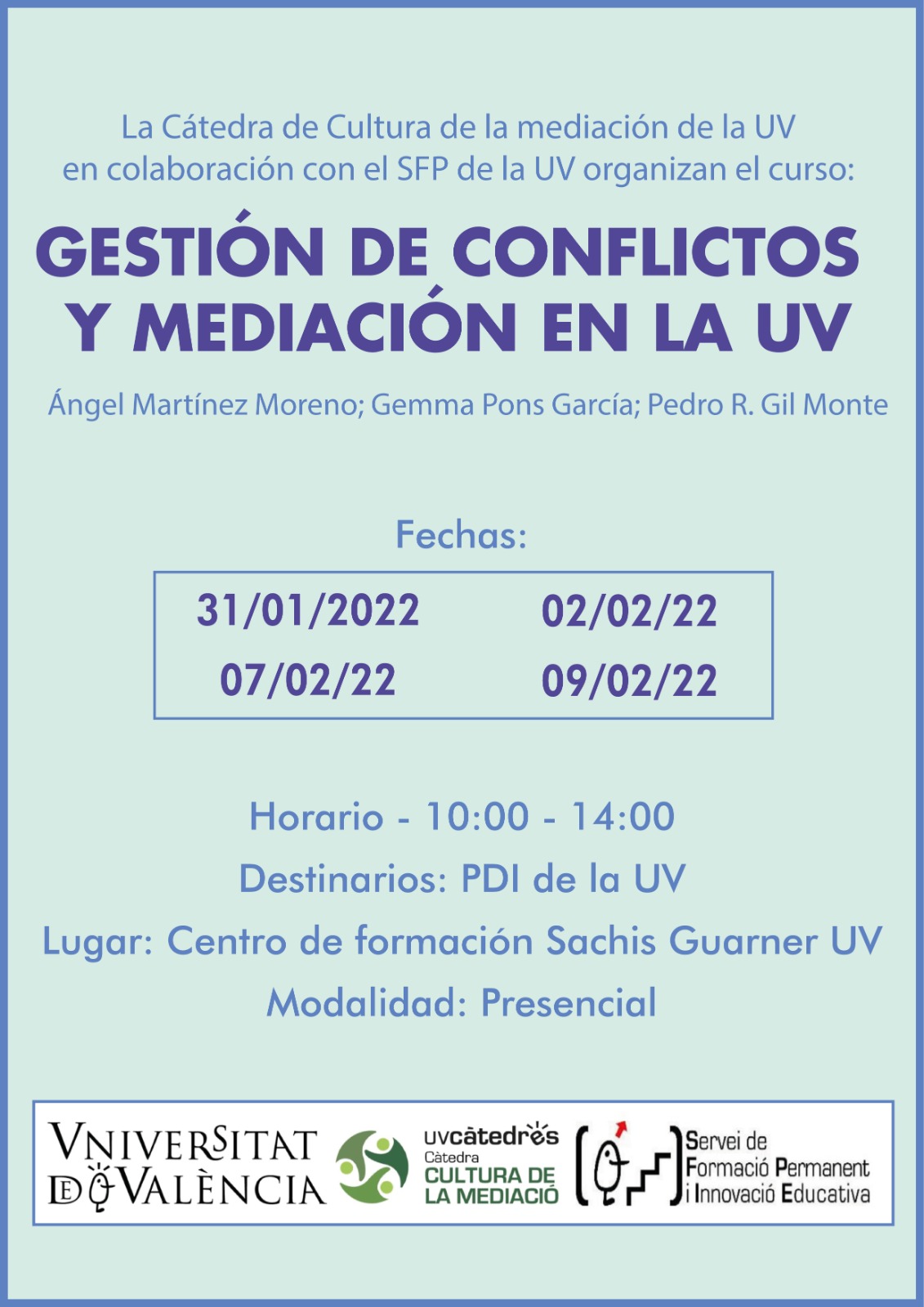The course is organised jointly with the Permanent Training and Educational Innovation Service of the UV and the target audience is the PDI of the Universitat.

This course is part of the offer of the SFPIE (Permanent Training and Educational Innovation Service) and has a duration of 16 hours. The Culture for Legal Mediation Chair is involved in the contents and the programme, which will be taught by Pedro Rafael Gil Monte, Ángel Martínez Moreno and Gemma Pons García.
Course Details
- Dates: 31/01/2022 ; 02/02/2022 ; 07/02/2022 ; 09/02/2022.
- Timetable: 10:00 h. - 14:00 h.
- Duration: 16 h.
- Place: Manuel Sanchis Guarner Center for Education and Quality (on-site modality).
- More information about the course and registration on SFPIE web.
Contents
- Conflict, negotiation and mediation in organisations: a psychosocial perspective.
- The process of building conflict and problems out of dysfunctional situations.
- Mapping the conflict.
- Basic conflict management strategies.
- Diagnosis of mediability.
- Mediation techniques and their integration into the mediation process.
- Case studies.
Training objectives
- Understanding the psychosocial variables involved in the processes of conflict, negotiation and mediation.
- Knowing how to identify the emotional and cognitive components present in interpersonal relationships and their influence on the development of conflicts and their resolution.
- Differentiating between problem, conflict, aggression and violence at work.
- Knowing procedures to identify the conflict process and its resolution at work and promote a healthier social environment.
- Identifying the mechanisms through which internal dialogue is produced (e.g. ruminations, distorted thoughts, attributions, etc.), thus making it possible to manage it and its influence on the development of conflicts.
- Identifying personal characteristics that influence conflict resolution.
- Having operational schemes for the analysis of dysfunctional situations, as well as for the construction and management of problems.
- Learning techniques aimed at self-management in situations of high emotional intensity, both in oneself and in the relationship with people in the environment and building healthier interpersonal experiences.
- Approaching a new understanding of conflict and its dynamics, through a practical, experiential method.
- Providing participants with basic mediation techniques and tools for daily conflict management.








